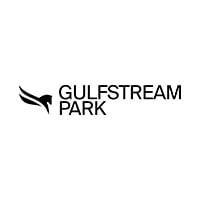Enhancing Customer Service Culture In The Hospitality Industry:
The Value Of Accountability Through Guest Surveys
By George Polyard
Download
- Our Insights
- The Value Of Accountability Through Guest Surveys
Intro
In the competitive landscape of the hospitality industry, exceptional customer service stands as a fundamental pillar for success. One effective strategy to foster a culture of customer-centricity and continuous improvement is the implementation of guest surveys. These surveys not only provide valuable insights into guest experiences but also serve as a powerful tool to drive accountability and positive change. Incorporating guest surveys can build a customer-centric culture which can result in improved customer service, increased visitation, higher average daily rates (ADR), more direct bookings, and ultimately contribute to overall revenue growth.
The Importance of Customer Service in the Hotel Hospitality Industry
Customer service has emerged as a defining factor in the hospitality sector, influencing guest loyalty, reputation, and profitability. Organizations around the world look to hospitality as the pinnacle of customer service. Brands, such as Four Seasons and The Ritz-Carlton have cemented the industry’s reputation for providing exceptional customer service.
The Role of Guest Surveys
Guest surveys serve as a structured method to collect feedback and gauge guest satisfaction, enabling hotels operators to identify strengths and areas for improvement.
- Direct Guest Input: Surveys provide guests with a platform to voice their opinions, fostering a sense of involvement and empowerment. Surveys also provide guests an outlet for their feedback, before publicizing their opinion on social media.
- Data-Driven Insights: Feedback collected through surveys offers data-driven insights that inform strategic decisions and resource allocation.
Improving Customer Service
Guest surveys contribute significantly to elevating customer service standards within the hotel hospitality industry. Through a culture of customer-centricity surveys help guide operators to areas where they can both improve and where their service is resonating with guests.
- Actionable Insights: Guest feedback highlights specific aspects of the guest experience that require attention, guiding targeted improvements.
- Swift Issue Resolution: Early detection of issues allows for swift intervention and resolution, enhancing guest satisfaction. According to a survey by ReviewPro, hotels that consistently respond to online reviews experience a 17% increase in RevPAR.
Increasing Visitation and Guest Loyalty
Positive guest experiences, driven by improved customer service, lead to increased visitation and loyalty.
- Positive Word-of-Mouth: Satisfied guests are more likely to recommend the hotel to others, expanding the customer base.
- Repeat Business: Exceptional customer service cultivates guest loyalty, resulting in repeat visits and a higher customer lifetime value.
Boosting Average Daily Rates (ADR)
Enhanced customer service, driven by guest survey insights, can positively impact ADR.
- Perceived Value: Exceptional service elevates the perceived value of the hotel, justifying higher room rates.
- Premium Experience: Guests are often willing to pay more for an exceptional and memorable stay.
Encouraging Direct Bookings
Guest surveys can also lead to an increase in direct bookings, reducing reliance on third-party platforms.
- Improved Reputation: Positive survey results enhance the hotel's reputation, making it an attractive option for direct bookings.
- Customer Trust: Satisfied guests are more likely to book directly with a hotel they trust.
Growing Total Revenue
The cumulative effect of improved customer service, increased visitation, higher ADR, and direct bookings leads to revenue growth.
- RevPAR Enhancement: Revenue per Available Room (RevPAR) rises due to higher occupancy and ADR. A study by Cornell University's Center for Hospitality Research revealed that an increase in customer satisfaction scores led to higher ADR and RevPAR growth.
- Optimized Resources: Addressing specific issues highlighted in surveys prevents revenue loss caused by negative guest experiences.
Navigating Challenges
Implementing guest surveys also comes with challenges that hotels should be prepared to address:
- Survey Fatigue: Multiple survey requests can lead to guest annoyance, requiring careful timing and discretion.
- Data Overload: Analyzing survey responses can be overwhelming, necessitating effective data management tools.
Strategies for Effective Implementation
To extract maximum value from guest surveys, hotels can follow specific strategies:
- Timely Feedback: Request feedback at relevant touchpoints, ensuring that the guest experience is fresh in their minds.
- Actionable Insights: Focus on actionable feedback that can lead to tangible improvements.
- Transparency: Communicate survey results and actions taken to demonstrate accountability and foster trust.
Conclusion
In an era where customer experiences drive business success, the integration of guest surveys as a mechanism of accountability is paramount. These surveys not only enable hotels to improve customer service, boost visitation, enhance ADR, encourage direct bookings, and grow total revenue, but they also create a culture of continuous improvement that resonates throughout the organization. By valuing guest feedback, implementing strategic improvements, and cultivating a customer-centric mindset, hotels can position themselves at the forefront of the industry, catering to the evolving needs and expectations of today's discerning travelers.
LET'S GET TO WORK









